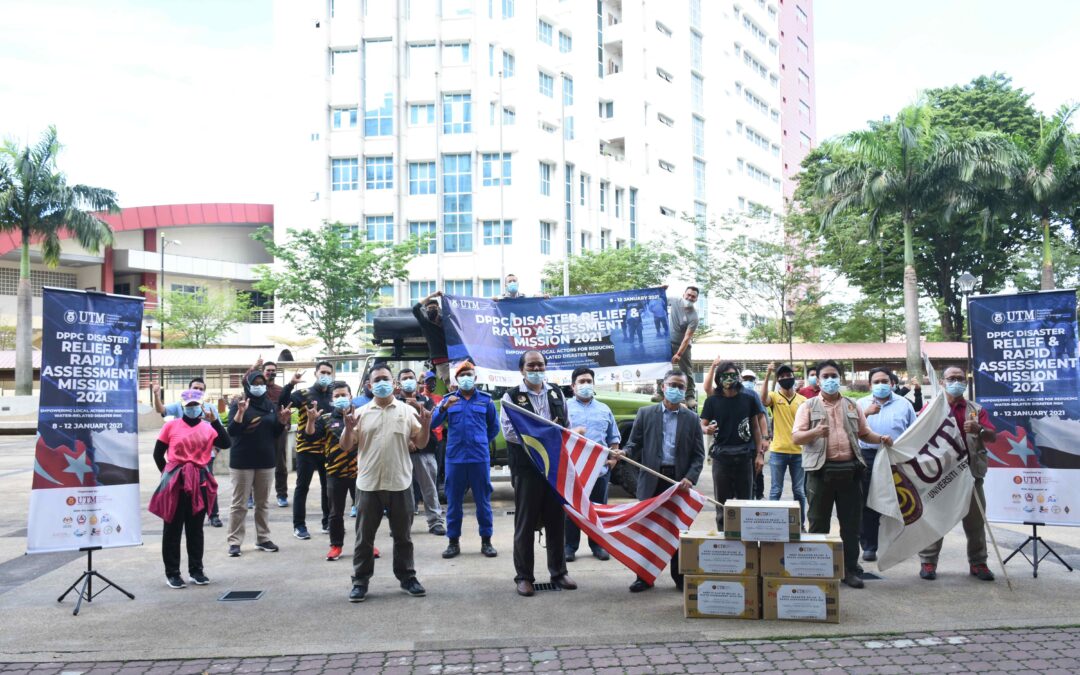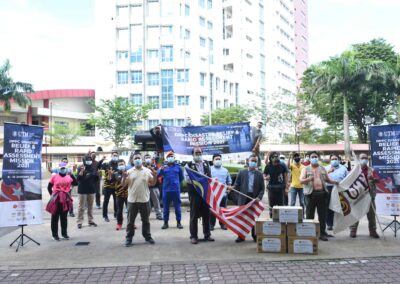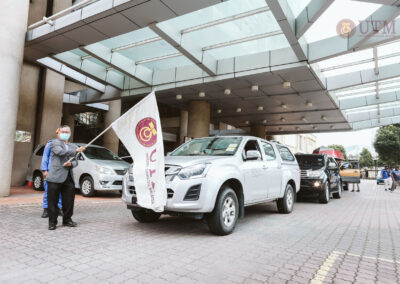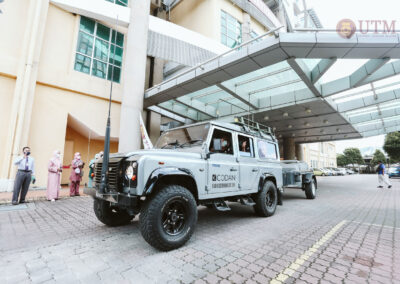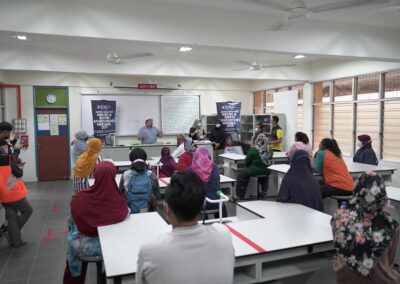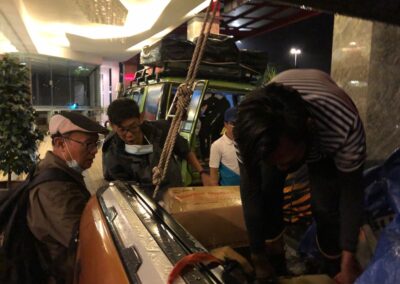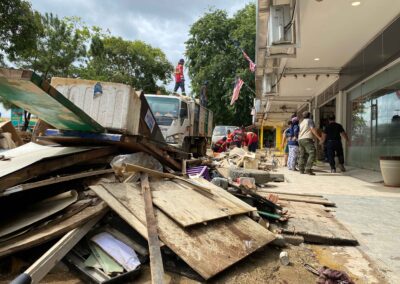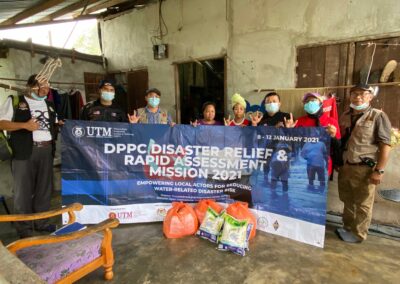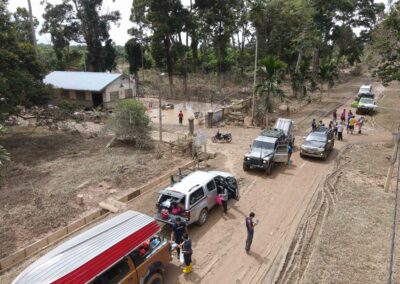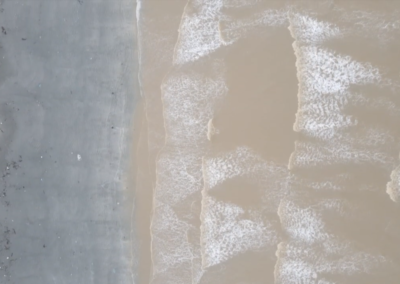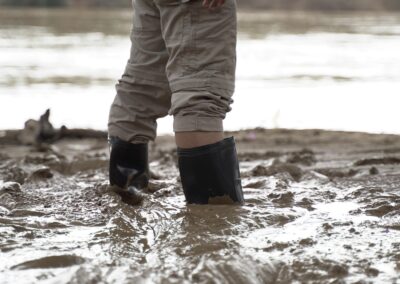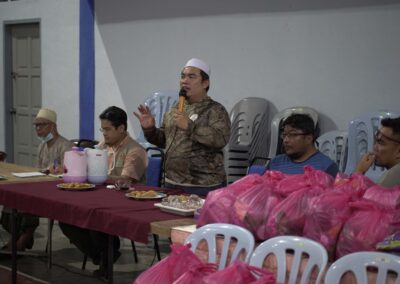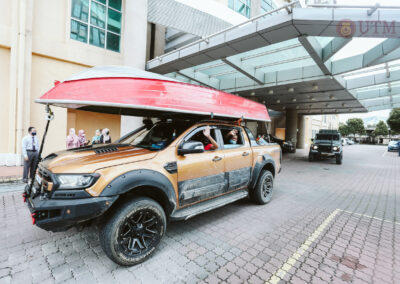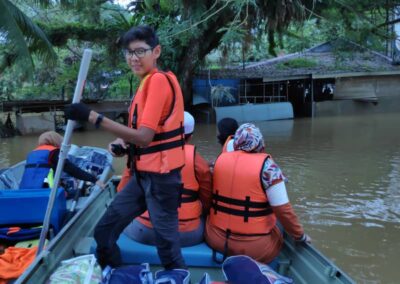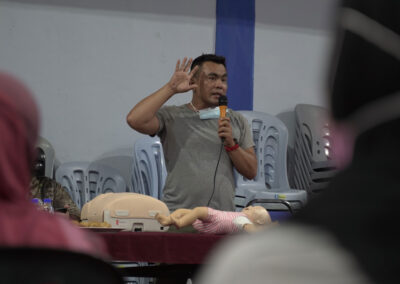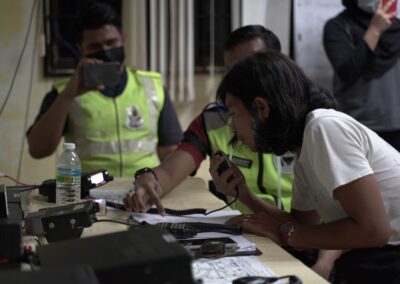The recent and current flooding occurring across Malaysia poses both economic and life-threatening challenges to the thousands of families affected. The Disaster Preparedness and Prevention Center (DPPC) of Malaysia-Japan International Institute of Technology (MJIIT), Universiti Teknologi Malaysia spearheaded a one-of-kind ‘mission’ targeted to achieve eleven unique objectives in 5-days, both in Johor and Pahang beginning on the 8th January 2021. This mission was made unique due to the involvement of multiple stakeholders from the private sectors, NGOs, a Deaf Society, ‘local champions’, and respected public agencies. Among these related parties are the National Disaster Management Agency (NADMA), Malaysia Civil Defence Force (APM) Malaysia, Fire and Rescue Department Malaysia (BOMBA), Malaysian Amateur Radio Transmitters’ Society (MARTS), National Disaster Management Association (NADIM), I-Divers, the Malaysia Deaf Sports Association (MSDeaf) and the Pertubuhan Gabungan Bantuan Bencana NGO Malaysia (BBNGO). This mission was made possible by the strong support of the Japan International Cooperation Agency (JICA) and all public contributors alike.
Among the eleven aims of this mission is the performance of a rapid assessment in all the locations visited, namely Kluang – Johor Bahru – Kota Tinggi – Mersing – Pekan – Kuantan – Maran – Jerantut – Temerloh. This included studying the impacts of recent monsoons resulting in riverine floods, landslides, and high-tide disaster-related phenomena while exploring good practices, benchmarking local commitments, understanding emerging risk needs and demands, climate-induced disasters, cascading hazards and community-led disaster risk reduction in the most vulnerable states to extreme weather, environmental degradation, rapid urbanization, and anthropogenic activities. This mission additionally represents the progress made towards achieving the global G-target on the multi-hazard early warning system and details on disaster risk and people’s assessments as set by 2030, emphasising the co-design and co-development of local Disaster Risk Reduction (DRR) resilience strategies to rejuvenate DRR investment, and the promotion of a public-private-academic-civil society model of five-fold helix innovation characterized by environmental disasters and systemic risk.
What makes this mission more unique is the efforts made by MSDeaf and I-Divers in the engagement with the special needs community, particularly the deaf. As many do not realise the challenges faced by these communities during and after a disaster, this mission inspires more of such engagements and the understanding of the special needs community in the future. MsDeaf provided help to disabled and underprivileged victims by seeking to recognize and investigate disabled deaf victims and to offer them assistance by providing education in sign language.The mission even succeeded in locating a few deaf adults who have never been exposed to any sign language training in their lives (they are between 29 to 50 years old), unemployed and deeply neglected in terms of communication skills.
On top of this, special sessions on basic life-saving, surface water danger detection, and CPR was also done with the communities by I-Divers, which was also telecasted live via Bahasa Isyarat Malaysia (Malaysian Sign Language) by MSDeaf. Led by YBhg. Ustaz Muhamad bin Abdullah, or popularly known as Ustaz Amin, I-Divers even contributed in a few short post-traumatic healing sessions to psychologically motivate the affected victims.
In addition to achieving the mission aims, a part of this mission is to aid in a way of donations under the supervision of NADIM, cleaning and donating dry foods for the victims of the floods. Several ‘local champions’ were identified prior to the mission to assist with the more targeted assistance (to the most deeply affected families or individuals in each area or kampung). This mission hence uniquely empowers local champions to work alongside DPPC in data collection, aids distribution and special needs assessments. The mission was also made unique with the involvement of the Malaysian Amateur Radio Transmitters’ Society (MARTS) as the mission’s communications leader in guiding the entire convoy of seven 4x4s (including one with a boat). Sharing sessions were also held by MARTS to expose to the public what amateur radio is all about and how valuable their services are in times of disasters.
Within 5-adventurous days, journeying throughout Johor and Pahang, the mission delegates achieved all the eleven aims of the mission and built new networks and future collaborations. The delegates safely arrived back in MJIIT UTM KL on the late evening of the 12th January 2021.
DPPC MJIIT UTM hopes to inspire many other such collaborative efforts towards learning from each other and towards building a resilient nation.
Not-another-ordinary-mission. Accomplished.
Reported by:
Dr. Rahayu binti Tasnim
Malaysia-Japan International Institute of Technology
Universiti Teknologi Malaysia
rahayutasnim@utm.my
